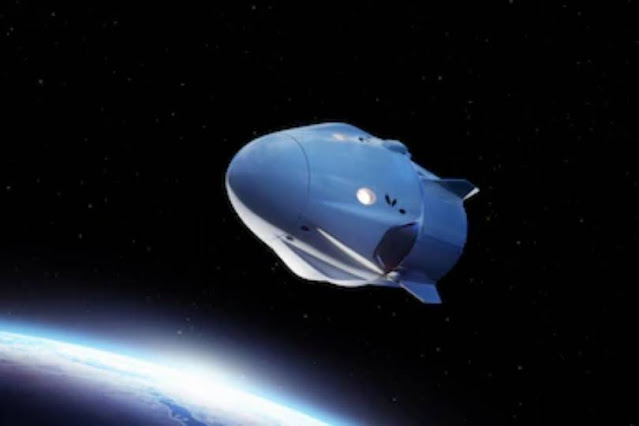Featured
- Get link
- X
- Other Apps
Space Exploration and Beyond
Space exploration is the investigation, by means of crewed and uncrewed spacecraft, of the spreads of the universe beyond Earth's atmosphere and the use of the info so gained to increase knowledge of the cosmos and benefit humanity.
There are four main types of space exploration:
Flybys: These are missions that pass by a planet or other
object in space. Flybys are often used to gather information about the object's
size, shape, and composition.
Orbiters: These are missions that stay in orbit around a
planet or other object in space. Orbiters can be used to study the object in
detail, or to deploy other spacecraft, such as landers or rovers.
Landers: These are missions that land on a planet or other
object in space. Landers can be used to study the object's surface in detail,
or to collect samples.
Rovers: These are mobile robots that explore the surface of
a planet or other object in space. Rovers can be used to study the surface in
detail, or to collect samples.
Space exploration has a wide range of benefits for humanity.
It can help us to learn more about our place in the universe, to develop new
technologies, and to find new resources. Space exploration can also inspire
people and motivate them to achieve great things.
Some of the specific benefits of space exploration
include:
Improved understanding of the universe: Space exploration
has helped us to learn. This knowledge can help us to better understand our own
planet and its place in the universe.
Development of new technologies: Space exploration has led
to the development of many new technologies, such as solar cells, lightweight
materials, and navigation systems. These technologies have been used to improve
our lives on Earth, and they have also been used to develop new spacecraft and
space exploration technologies.
Discovery of new resources: Space exploration has led to the
discovery of new resources, such as water ice on the Moon and Mars. These
resources could be used to support future human exploration of space, or they
could be used to develop new products and technologies on Earth.
Inspiration: Space exploration can inspire people and
motivate them to achieve great things. It can also help us to develop a sense
of wonder and curiosity about the universe.
Space exploration is a challenging and expensive endeavor,
but it is also a very rewarding one. It has the potential to benefit humanity
in many ways, and it is sure to continue to be a major focus of scientific
research and technological development in the years to come.
Here are some of the future challenges and opportunities
in space exploration:
The challenges:
The high cost of space exploration.
The risks involved in space travel, such as radiation
exposure and the dangers of a launch or landing accident.
The need to develop new technologies to support
long-duration space travel and exploration.
The opportunities:
The potential to learn more about our place in the universe
and the origins of life.
The discovery of new resources, such as water ice on the
Moon and Mars, that could be used to support future human exploration of space.
The development of new technologies that could be used to
improve our lives on Earth, such as new medical treatments and new ways to
generate energy.
The future of space exploration is bright. With continued
investment in research and development, we can overcome the challenges and
realize the many opportunities that space exploration has to offer.
What is space exploration called?
Space exploration is also called spacefaring or
astronautics. It is the investigation, by income of crewed and uncrewed
spacecraft, of the reaches of the universe beyond Earth's atmosphere and the
use of the information so gained to increase knowledge of the cosmos and
benefit humanity.
The term "space exploration" is often used
interchangeably with "spaceflight", but there is a subtle difference
between the two terms. Spaceflight is the act of traveling through space, while
space exploration is the act of investigating space. Space exploration can
involve spaceflight, but it can also involve other activities, such as sending
probes to other planets or studying space with telescopes.
The history of space exploration is a long and fascinating
one. The first humans to fly into space were the Soviet cosmonauts Yuri Gagarin
and Gherman Titov in 1961. Since then, there have been many other human
spaceflights, including missions to the Moon, the International Space Station,
and even beyond.
Uncrewed spacecraft have also played a major role in space
exploration. These spacecraft have been used to study the planets, the sun, and
other objects in space. They have also been used to collect samples from space
and to send back data to Earth.
Space exploration is a challenging and expensive endeavor,
but it is also a very rewarding one. It has the potential to benefit humanity
in many ways, and it is sure to continue to be a major focus of scientific
research and technological development in the years to come.
- Get link
- X
- Other Apps
Popular Posts
Challenges And Debates Sociotechnical Systems
- Get link
- X
- Other Apps


Comments
Post a Comment